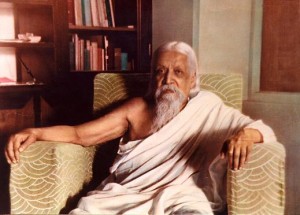
When we leave the old world and commit to a life in the search for Truth, discipline is extremely helpful to keep in check all the old movements. However, to make hard and fast rules that apply to all is very often detrimental for each one’s nature is unique, with equally unique requirements. Sri Aurobindo tells us what rules signify for an aspirant.
It is not always safe to apply practically to oneself what has been written for another. Each sadhak is a case by himself and one cannot always or often take a mental rule and apply it rigidly to all who are practising the yoga. What I wrote to X was meant for X and fits his case, but supposing a sadhak with a different (coarse) vital nature unlike X were in question, I might say to him something that might seem the very opposite, “Sit tight on your lower vital propensities, throw out your greed for food – it is standing as a serious obstacle in your way; it would be better for you to be ascetic in your habits than vulgarly animal in this part as you are now”. To one who is not taking enough food or sleep and rest in the eagerness of his spirit, I might say, “Eat more, sleep more, rest more, do not overstrain yourself or bring an ascetic spirit into your tapasya”.
To another with the opposite excess I might speak a contrary language. Each sadhak has a nature or turn of nature of his own and the movement of the yoga of two sadhaks, even where there are some resemblances between them, is seldom exactly the same. Again, in applying some truth that is laid down it is necessary to give it its precise meaning. It is quite true that “in our path the attitude is not one of forceful suppression, nigraha”; it is not coercion according to a mental rule or principle on an unpersuaded vital being. But that does not mean either that the vital has to go its own way, but an inner change in which the lower vital is led, enlightened and transformed by a higher consciousness which is detached from the objects of vital desire. But in order to let this grow an attitude has to be taken in which a decreasing importance has to be attached to the satisfaction of the claims of the lower vital, a certain mastery, saṁyama, being above any clamour or these things, limiting such things as food to their proper place. The lower vital has its place, it is not to be crushed or killed, but it has to be changed, “caught hold of by both ends”, at the upper end a mastery and control, at the lower end a right use. The main thing is to get rid of attachment and desire; it is then that an entirely right use becomes possible. By what actual steps, in what order, through what processes this mastery of the lower vital shall come depends on the nature, the stress of development, the actual movement of the yoga.
*
Rules are indispensable for the orderly management of work; for without order and arrangement nothing can be properly done, all becomes clash, confusion and disorder. In all such dealings with others, you should see not only your own side of the question but the other side also. There should be no anger, vehement reproach or menace, for these things only raise anger and retort on the other side. I write this because you are trying to rise above yourself and dominate your vital and when one wants to do that, one cannot be too strict with oneself in these things. It is best even to be severe with one’s own mistakes and charitable to the mistakes of others.
*
Rules like these are intended to help the vital and physical to come under the discipline of sadhana and not get dispersed in fancies, impulses, self-indulgences; but they must be done simply, not with any sense of superiority or ascetic pride, but as a mere matter of course. It is true also that they can be made the occasion of a too great mental rigidity – as if they were things of supreme importance in themselves and not only a means. Put in their right place and done in the right spirit, they can be very helpful for their purpose.





